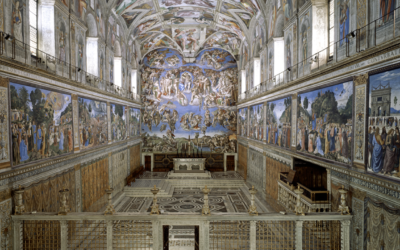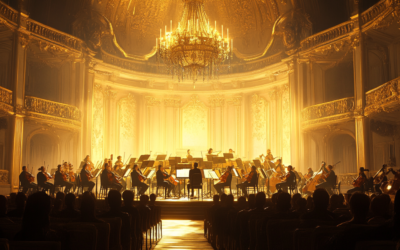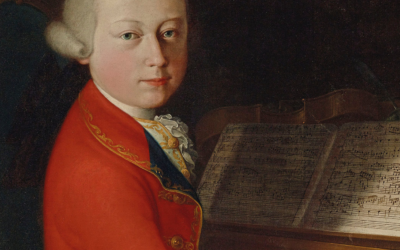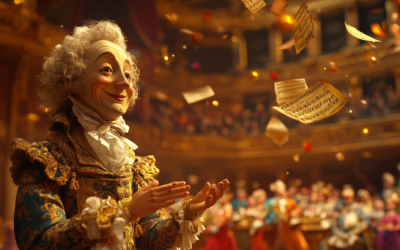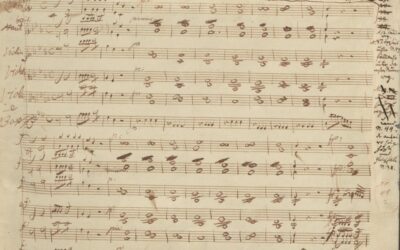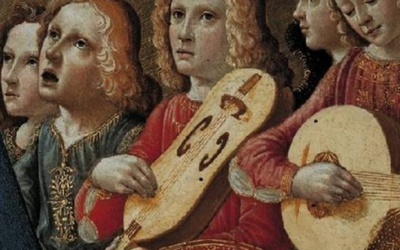The Return of Gatti's Aria
Our Revision Takes the Stage in Munich
In the magnificent Max Joseph Hall of the Residenz München, tenor Daniel Behle performed the aria “Puoi vantar le tue ritorte” by Luigi Gatti, taken from his opera Nitteti. This concertante piece, for which we composed the cadenzas, was brought to life by the Salzburger Hofmusik orchestra under the direction of Wolfgang Brunner.
Mozart: The Fall of the Gods
This book offers a fresh and critical look at the life of Wolfgang Amadeus Mozart, challenging the myths that have surrounded him for centuries. We strip away the romanticised image of the “natural genius” and delve into the contradictions within Mozart’s extensive biographies. Backed by nearly 2,000 meticulously sourced citations, this work invites readers to explore a deeper, more complex understanding of Mozart. Perfect for those who wish to question the traditional narrative, this biography is a must-read for serious music lovers and historians.
"It’s a pleasure to breathe new life into such a powerful, yet overlooked piece of music."
@MozartrazoM
We first introduced this virtuosic and spectacular music in its modern premiere in Bayreuth, where it was met with great enthusiasm. Given its success, we were thrilled to see it performed again in Munich.
Earlier this year, on 24th April, we had the opportunity to discuss this work in detail during our lecture at Bocconi University, explaining the intricate revisions we made to Gatti’s original composition. This marks another exciting milestone in reviving forgotten gems of 18th-century music and bringing them to modern audiences.
You May Also Like
The Legend of Mozart’s Miserere
The enduring popularity of the narrative surrounding Mozart’s Miserere highlights the allure of the prodigy myth, but as we peel back the layers, we uncover a more nuanced picture of his life and the musical landscape of the time. The reality often contrasts sharply with the romanticized tales that have shaped our understanding of his genius.
Rediscovering Musical Roots: The World Premiere of Gasparini and Mysliveček
This December, history will come alive as the Camerata Rousseau unveils forgotten treasures by Quirino Gasparini and Josef Mysliveček. These premieres not only celebrate their artistry but also reveal the untold influence of Gasparini on Mozart’s Mitridate re di Ponto. A pivotal event for anyone passionate about rediscovering music history.
The Curious Case of Mozart’s Phantom Sonata
In a striking case of artistic misattribution, the Musikwissenschaft has rediscovered Mozart through a portrait, attributing a dubious composition to him based solely on a score’s presence. One has to wonder: is this music really Mozart’s, or just a figment of our collective imagination?
The Illusion of Canonic Mastery
This post explores the simplistic nature of Mozart’s Kyrie K.89, revealing the truth behind his early canonic compositions and their implications on his perceived genius.
The Unveiling of Symphony K.16
The Symphony No. 1 in E-flat major, K.16, attributed to young Wolfgang Mozart, reveals the complex truth behind his early compositions. Far from the prodigious work of an eight-year-old, it is instead a product of substantial parental intervention and musical simplification.
The Cibavit eos and Mozart’s Deceptive Legacy
The Cibavit eos serves as a striking reminder that Mozart’s legacy may be built on shaky foundations, questioning the very essence of his so-called genius.


